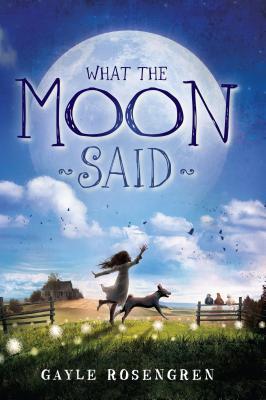 It's 1930 in Chicago, Esther has been living here with her Ma, Pa, and sisters and brothers. When the Great Depression hits, everyone is losing their jobs, Pa included. The Vogel family decide to move to a farm in Wisconsin thinking they can make a fresh start leaving two of the daughters behind.
It's 1930 in Chicago, Esther has been living here with her Ma, Pa, and sisters and brothers. When the Great Depression hits, everyone is losing their jobs, Pa included. The Vogel family decide to move to a farm in Wisconsin thinking they can make a fresh start leaving two of the daughters behind. Country life turns out to be disappointing as the farm turns out to be more challenging then they thought, it has an outhouse, there's no ice box or electricity and tending to the animals and crops is hard work. Esther is eager to take on the challenge, she wants to prove to Ma that she can be worthy of her love by helping out and make her proud of her. Maybe then Ma will show her the same affection as her friend Shirley's mom does. Ma was born in Russia and therefore has many superstitions and signs that she believes in. Spider's before breakfast means good luck, buttoning a shirt incorrectly or putting your shoes on a table are bad luck. Ma's signs guide her, but sometimes her signs interfere, especially when Ma says Esther can't be friends with Bethany because she has a mole on her face that makes her "marked" or dangerous.
Esther is a very creative and imaginative girl. She daydreams about life in the country with her family and lovely images of fields, bubbling brooks, orchards and barns filled with animals. It was very easy to relate to Esther's feelings of hopefulness and also relate to her struggles to leave best friends and trying to make new ones. Esther is seen as a very lonely girl who draws comfort in the dog that she finds, playing with her doll and writing letters to her older sister. Her relationship with her mother is heart wrenching. Esther accurately portrays a girl who believes that her mother doesn't love her as much as her siblings. Everything she seems to try makes her mother seem like she is less and less proud of her. Esther makes mistakes, and her thoughts reflect that of a girl at this age. Esther isn't able to take into account her mother's European upbringing and history as reasons for not being as affectionate with her. I was delighted when Esther finally came to realize that Ma's lack of overt displays of affection didn't mean that she loved her any less just that "love was actions more than words." What The Moon Said gives an accurate description of one family as they navigate through the Depression and its hardships. It will appeal to children who enjoy historical fiction similar to Little House on the Prairie.
No comments:
Post a Comment